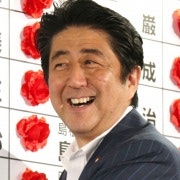Romney goes from hawk to dove
The final US presidential debate on foreign policy again saw fairly solid performances from both candidates.
Barack Obama defended his record as commander-in-chief with an effective dig against Mitt Romney, through his ‘horses and bayonets' line, seeking to portray the Republican challenger as inconsistent, inexperienced, erratic and out of touch.
Interestingly, Romney delivered a less hawkish image overall, even advocating the goal of a ‘peaceful planet'. He nevertheless attempted the juggling act of accusing the president of weakness, and re-emphasised his campaign pledge of increasing defence spending by US$2 trillion.
When it came to actual policy detail though, both essentially held the same position on most issues, particularly regarding the Middle East; no direct US intervention in Syria, tough sanctions on Iran, firm support for Israel, and eventual withdrawal from Afghanistan.
Romney did reiterate his claim that Russia remains America's ‘number one geopolitical foe', which implies he would abandon any further attempts at nuclear arms control, again allowing Obama a chance to portray Romney as stuck in a Cold War mindset.
A more confrontational stance against Russia by Romney would be problematic for the US, which still requires Russian cooperation on a number of international issues, not least its strategic role in providing logistic support for extracting US forces from Afghanistan.
On China, both Obama and Romney tied their responses to the domestic economy. Romney again repeated his threat to declare China a currency manipulator ‘on day one', claiming that a ‘silent' undeclared trade war was already under way. However, he also took a more conciliatory tone, stating that he did wish for China to be a good trading partner, indicating that in office, his tough campaign rhetoric may face the constraints of diplomatic reality.
Raising tariffs on Chinese imports to punish currency manipulation would result in higher US inflation, and invite protectionist retaliation by China, which would deny US access to Chinese markets.
China could also retaliate by reducing its direct investment in US industry, which would also cost the US jobs. China could also sell off more of its US$1.15 trillion in US debt, which would raise US interest rates.
While Romney criticised US indebtedness to China, it has already sold off nearly 10 per cent of its share of US debt over the past year, set to be replaced by Japan, which has increased its share by 24 per cent, to US$1.12 trillion.
As for its currency manipulation, China has actually allowed its currency to gradually strengthen over the past several years, as it seeks to shift the emphasis of economic policy from exports, to its domestic economy.
If Romney remains determined to tackle China, to be consistent, he would have to tackle most other developed countries which are far worse currency manipulators, including Taiwan, Switzerland, Saudi Arabia, and Israel, which seems rather unlikely.
Being forced to confront this reality could lead to Romney quietly dropping his harsh public stance against China, and instead take more sedate action via the WTO, which would again be following Obama's policy on trade disputes with China.
Obama did briefly refer to the pivot of US forces to the Pacific to secure the region, but again quickly turned the debate back to competitiveness in the domestic economy, defending the bailout for the US vehicle industry, and his economic record on education and employment.
For a debate supposedly all about foreign policy, this left much unsaid, by either candidate. Nothing specific was offered on the wider challenges facing the Asia-Pacific region, such as the territorial disputes of the South China Sea, and between China and Japan.
While both Obama and Romney declared that Iran would never be allowed to develop nuclear weapons, North Korea and its nuclear proliferation was barely mentioned.
Neither was most of the rest of the world mentioned either, apart from very brief asides. The ongoing crisis in Europe's economy was only cited as a warning by Romney, of not going down the road to Greece. Apart from the political instability in Egypt, Libya, Mali and Somalia, the rest of Africa was ignored, as was India and Central Asia. The importance of stability in nuclear-armed Pakistan was raised by Romney, which gave Obama another opportunity to defend his policy of drone strikes, and again refer to the killing of Osama bin Laden.
Romney also did at least refer to Latin America, if only as a potential alternate market to China for the US. Australia did not rate a mention, unless you count general declarations of support by Obama and Romney for America's allies as implicit endorsement.
Unless the debate manages to swing a substantial number of the remaining undecided voters, the race seems set to be increasingly tight for the final two weeks of the campaign.
Romney and Obama are effectively tied in some national polls, although Obama appears to be maintaining leads in most of the key swing states, of which Ohio remains the most vital; neither can win without it. There is a very real possibility the US is again heading for an election result where the president is elected with a majority in the electoral college, but a minority of the popular vote. US politics is likely to remain in its bitter, fractious, divided state for a long time yet.
Craig Mark is professor of International Studies at Kwansei Gakuin University.
















